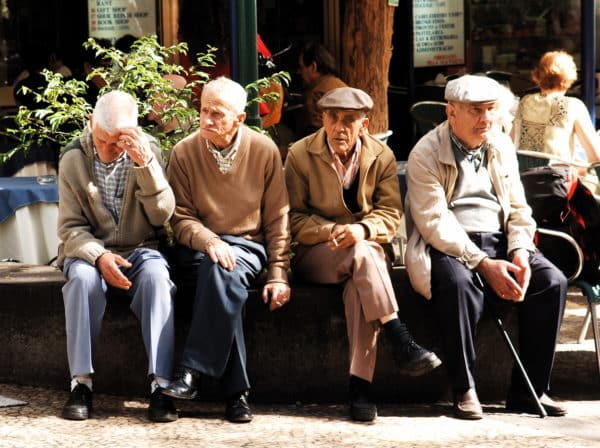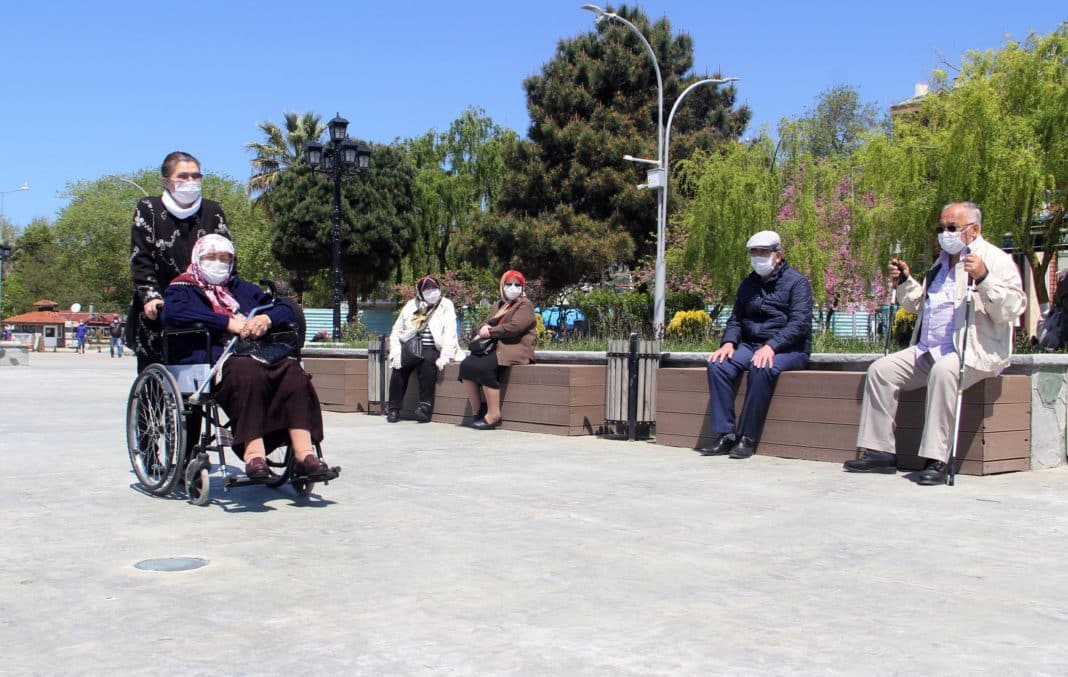In Alicante there are 134 people over 65 years of age for every 100 who are under 16, and as fertility falls to historical lows, births are down by 3.7% up to November
The fall in the birth rate that has been caused indirectly by the coronavirus health crisis has contributed to further accelerate the ageing of the population in the province of Alicante.
What, until now, has been a fairly well founded assumption, has been corroborated by the latest data on births and other demographic indicators published by the National Institute of Statistics (INE).
There is currently an average of 134.26 over 65s for every 100 people under the age of 16 residing in the Province. Furthermore, the ageing index has had the highest year- on- year growth in more than two decades.
The 13,334 births registered in 2020 are not a historical low, as the figure was significantly lower between 1994 and 1998. However, the birth rate is, at just 7.06 births per thousand inhabitants, and so is the fertility rate where, in 2020 only 32.66 births were registered for every thousand women between 15 and 49 years of age.
This index is now half of what it was four decades ago, although what is significant is that it has dropped 12 points since 2008, and that since 2018 it has regularly broken historical lows.

In parallel, the increase in longevity is contributing to an increasing number of older people, and the lower birth rate contributes to these groups having more relative weight over the population as a whole. Similarly, in the province of Alicante we must also add an external factor, the immigration of so-called foreign residents on the coast where, to a large extent, ages are also higher.
All these circumstances have favored the fact that the proportion of those over 65 when compared to those under 16 has doubled in less than three decades. In 1994 the ageing index was 66.18.
Right now, 20.46% of the residents of the Alicante province are over 65 years old, and 2.8% are over 85 years old. In 2001, these percentages were 15.83% and 1.3%, respectively, which gives an idea of how the population has been progressively ageing. This can also be seen in other indicators such as the median age of the inhabitants of the province: in women it is already 46.07 years, while for men it is 44.24.
It does not seem likely that the situation will change in the short term, based on the birth figures in 2021 that we know so far, highly conditioned, of course, by the coronavirus pandemic.
Until October, according to the latest estimates by the INE, 11,009 births had been registered in the province, 2.68% less than in 2020, but a decrease of 13.77% when compared to the same period in 2017.
Higher birth rates in the Elche-Crevillent and Orihuela areas
The health department with the most births between January and November 2021 was the area covered by the General Hospital of Alicante while the least was Alcoy, with 1,745 and 750, respectively. However, in proportion to its population, the highest birth figures corresponded to the areas of Elche-Crevillent, Orihuela and Elche-General Hospital, where 1,236, 1,156 and 1,075 boys and girls were born, respectively.
At the opposite extreme, the lowest figures were in Sant Joan d’Alacant, the Marina Baixa and Elda; in absolute terms there were 861, 821 and 993 births. Meanwhile, two other towns for which we have birth rates are Dénia where there were 931 and Torrevieja where 1,009 children were born.





